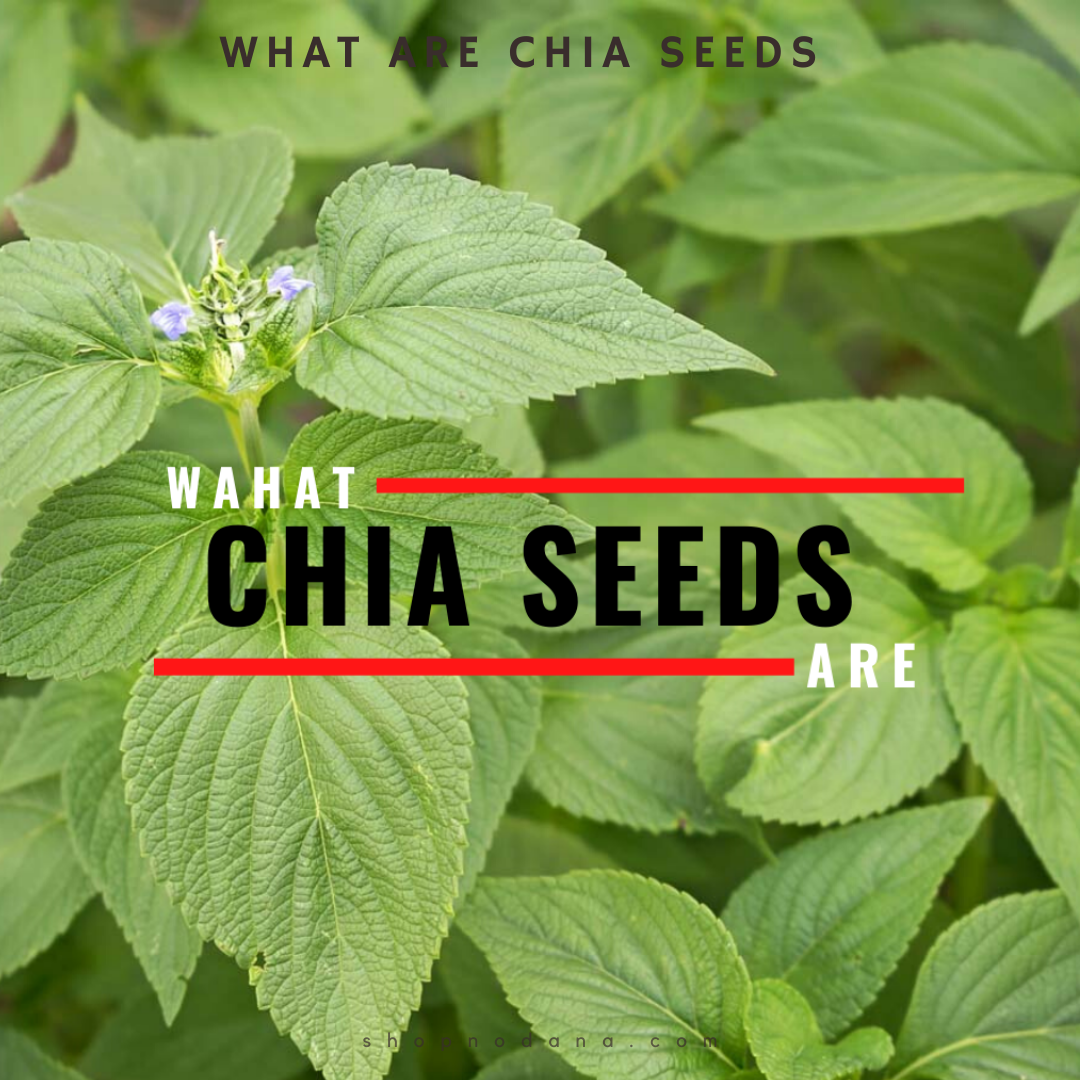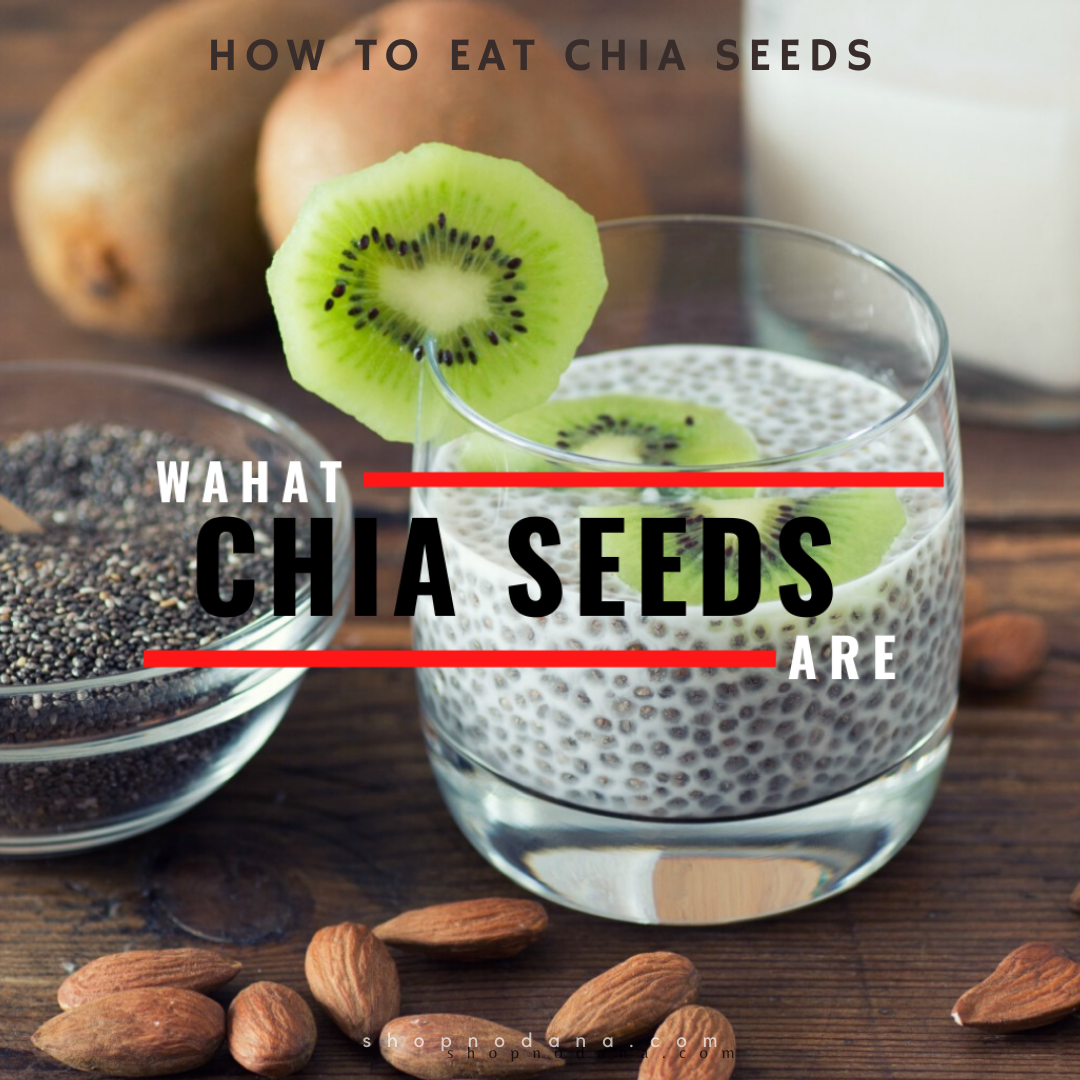What Are Chia Seeds-Nutrition And Facts
There is no such thing as starting your day with a nutritional punch for chia seeds. Did you know that chia seeds are one of the healthiest and most beneficial foods on the planet? So, what are chia seeds?
It also contains more calcium than a cup of milk and is loaded with antioxidants that help protect you from chronic diseases.
Some nutritionists claim that they can be beneficial for losing weight due to high fiber and the ability to expand your stomach after taking it.
What are Chia seeds?

The seeds of Chia is a small black seed of a plant called sage Spanish (English: Salvia Hispanica), and back origin of South America, it was food important to the tribes of the Maya and Aztecs, has used the Mayan people word shea to express force, although considered a staple food in history Ancient, but it has become famous a lot in recent times only.
It has become one of the most healthy foods in the world because it contains nutrients important for the health of the body and the brain, and it is worth noting that they are considered whole grains, and they do not contain Gluten: In addition, chia seeds are grown organically for the most part, and are not genetically modified.
The health benefits of chia seeds
They have many health benefits for the human body, including the following:
Rich source of fiber:
Although it contains a high amount of carbohydrates, most of these carbohydrates are nutritional fibers, and it can be said that fiber makes about 40% of the weight of chia seeds, which makes them one of the best sources of fiber, and therefore
Chia seeds can absorb 10-12 times their weight of water, which leads to their transformation into a gel, expanding in the stomach, and contributing to the feeling of satiety. (4) They reduce the speed of food digestion and absorption, and therefore it reduces the number of calories consumed, and in addition, Fiber is food for the beneficial bacteria in the intestine. Which is good for the health of the digestive system.
Chia seeds are rich in omega-3 fatty acids
Like flaxseed, they contain a very high percentage of omega-3 fatty acids.
In fact, they contain more omega-3 salmon fish.
However, it is important to keep in mind that omega-3s are mostly ALA (alpha-linolenic acid), which is not as beneficial as you think.
ALA needs to be converted into active forms of eicosapentaenoic acid (EPA) and docosahexaenoic acid (DHA) before your body can use it.
Unfortunately, humans are ineffective in converting ALA into these active forms.
Therefore, vegetable omega-3 tends to be much lower than animal sources such as fish oil (6).
Studies have shown that chia seeds – especially if ground – can increase blood levels of ALA and EPA but not DHA. This could be a problem.
Since they don’t offer any DHA, which is the most important omega-3 fat, most experts consider chia seeds as a low-quality omega-3 source.
To get DHA your body and brain need to either eat oily fish regularly or eat fish oil.
Rich source of protein:
They are a good source of proteins compared to other plants, as the protein makes up 14% of the weight of the seeds. Therefore, people who do not consume protein from animal sources are advised to use chia seeds. (5)
It is worth noting that it has been noted that protein consumption in quantities Good is associated with reducing appetite, thinking about food, and craving snacks late at night.
You should read
Differences between basil seeds and chia seeds- Are they the same?
Bone health:
They are an excellent source of calcium, especially for people who do not consume milk and milk products. They provide 18% of the recommended daily value of calcium, as they contain phosphorus, magnesium, and protein; Where these elements play an important role in promoting bone health.
Improve the physical performance of athletes:
It was noted in one study that athletes can use chia seeds instead of energy drinks, but this needs further studies to confirm it.
Reduce the risk of cardiovascular disease:
They are rich in fiber, which works to reduce high blood pressure and bad cholesterol levels in the blood, which reduces the risk of cardiovascular disease. They also contain omega-3 fats, which protect against thrombosis in the blood (Thrombosis) and tachycardia (Arrhythmias).
Reduce the risk of developing diabetes:
Studies have shown that the fibers present in these seeds work to regulate the work of the immune system, and reduce inflammation and the resulting problems, including diabetes, it has been observed that they prevent suddenly high blood sugar after meals.
Digestive Health:
A high-fiber diet promotes a healthy digestive system because it protects against constipation and promotes normal bowel movement.
Chia seeds are loaded with antioxidants
Another area where they shine is their high antioxidant content (2).
These antioxidants protect the sensitive fats in the seeds from tearing.
Although the benefits of antioxidant supplements are discussed, researchers agree that getting antioxidants from foods can have positive health effects (3).
More importantly, antioxidants fight the production of free radicals, which can harm cell molecules and contribute to aging and diseases such as cancer.
Benefits of chia seeds for weight loss
How to eat chia seeds
You can eat them raw or prepared in a number of dishes. Sprinkle ground or ground seeds over grains, rice, yogurt, or vegetables. In Mexico, a dish called chia fresco is prepared by soaking chia seeds in fruit juice or water.
They are very absorbent and develop a gelatinous texture when soaked in water, making it easy to mix them with cooked grains or other dishes.
Seeds are not the only important part of the chia plants; The buds are edible. Try adding them to salads, sandwiches, and other dishes.
The nutritional value of chia seeds
100 grams of chia seeds contains the following [1]:
| The nutritional component | The value |
|---|---|
| Water | 5.8 g |
| Calories | 486 calories |
| Protein | 16.54 g |
| Fats | 30.74 g |
| Carbohydrates | 42.12 grams |
| The fibers | 34.4 g |
| Calcium | 631 mg |
| Iron | 7.72 mg |
| Magnesium | 335 mg |
| Phosphorus | 860 mg |
| Potassium | 407 mg |
| Sodium | 16 mg |
| Zinc | 4.58 mg |
| vitamin C | 1.6 mg |
| Niacin | 8.83 mg |
| Vitamin A | 54 international units |
You should read
How to save money on foods- tips to save money during shopping
Cautions
Despite the many benefits of chia seeds, they may cause problems for some people, and these precautions must be observed when using the seeds:
- They contain large amounts of fiber, so overeating may cause some digestive problems, such as abdominal pain, gases, diarrhea, constipation, and bloating, and therefore it is advised that people with inflammatory bowel diseases (English: Inflammatory bowel diseases) reduce their intake of chia seeds.
- Chia seeds that are not soaked can cause suffocation, especially in people who have trouble swallowing. As mentioned previously, chia seeds absorb more than ten times their weight in water, and they may expand in the throat and cause it to become blocked.
- Some people may experience an allergic reaction as a result of eating chia seeds, causing symptoms such as diarrhea, constipation, itching, and bloating.
- The seeds may interact with some types of medicines, such as diabetes and blood pressure medicines, so people who are constantly taking these medications are advised to moderate the consumption of chia seeds, to prevent any complications that may affect health.
Tips
Chia seeds are relatively very easy to find in any major grocery store. It is black in color and has a slight nut flavor.
Raw can be sprinkled on cereal, yogurt, oatmeal, or juices. It can also be eaten cooked and added to baked goods such as bread and cakes.
In vegetable bread, they can replace eggs. To use it as an egg substitute for baking, try mixing 1 tablespoon of seeds with 3 tablespoons of water, then leave it for a few minutes. The gel that can be used in place of eggs will form in the bread.

